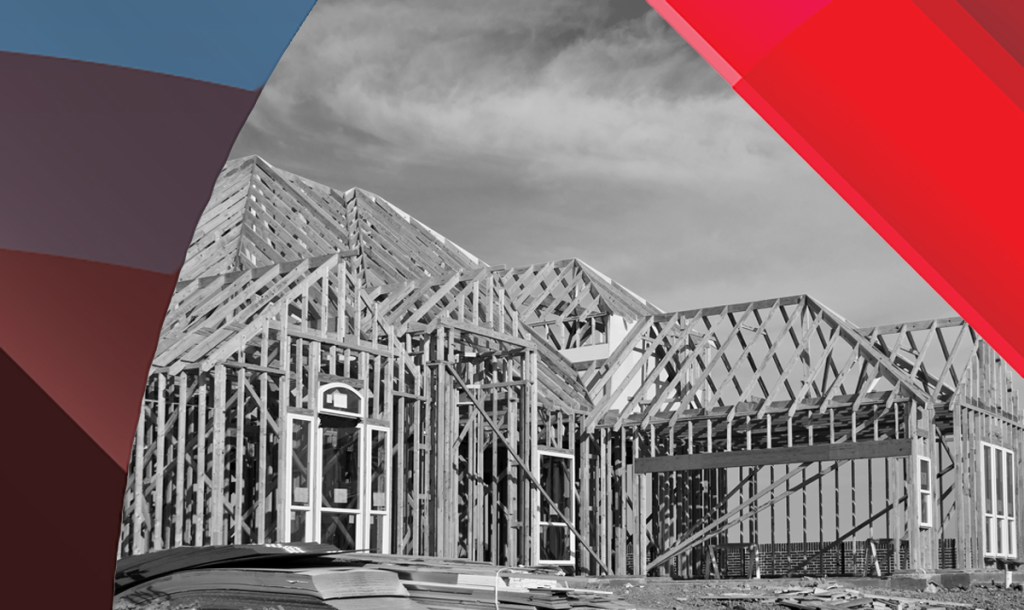New home sales beat the headline estimates and had positive revisions. How on earth did that happen? Not only that, the monthly supply data was revised lower from nine months to 8.3 months for the previous report. Let me tell you, we had a lot of shocked faces in economic land this morning.
First, we must never forget that the new home sales reports can be very wild month to month and that positive or negative revisions are widespread. However, this report did have positive revisions to go with it, so it’s not just a headline beat.
Here is the honest truth about the new home sales data: We came off the weakest new home sales recovery ever in the previous expansion. We never had a housing bubble credit boom, so we can’t have a housing bubble credit boom-bust. This means sales were never really working from a massively elevated level, pushed by exotic loan debt structures loans. This is a critical thing to remember going out the next few years.
From Census: New Home Sales Sales of new single‐family houses in May 2022 were at a seasonally adjusted annual rate of 696,000, according to estimates released jointly today by the U.S. Census Bureau and the Department of Housing and Urban Development. This is 10.7 percent (±18.9 percent)* above the revised April rate of 629,000, but is 5.9 percent (±22.0 percent)* below the May 2021 estimate of 740,000.
As you can see below, new home sales are still below the 2000 recession level, and we just had a significant spike in mortgage rates too. These monthly reports can be very wild, and I anticipate big swings in the reports until things calm down with mortgage rates.
From Census: Sales Price The median sales price of new houses sold in May 2022 was $449,000. The average sales price was $511,400.
We can see below, pricing got pretty crazy after 2020. The builders had pricing power and used it well to make their margins look great, even with all the added costs to build their homes. The market has changed with rates so much higher, but for the most part, the builders are managing the recent weakness in sales as best they can. Don’t be fooled by this report, they know what they’re dealing with, now that mortgage rates are above 6%.
Census: For Sale Inventory and Months’ Supply The seasonally‐adjusted estimate of new houses for sale at the end of May was 444,000. This represents a supply of 7.7 months at the current sales rate.
The monthly supply data for new homes often get mixed up with the existing home sales market. People go to the Fred website, type in the monthly supply, and believe it’s the existing home sales marketplace. I deal with people who tell me the monthly supply is 7.7 months. They think there is no housing shortage.
So, for Twitter, I had to create a rule.
We have two rules
1. We don’t talk about Fight Club
2. We don’t say the new home sales market supply is the existing home sales market.
The existing home sales market monthly supply is running at 2.6 months.
Five months of the supply are homes in construction. That is a high level, and two months of the supply hasn’t started construction yet, and a whopping 0.68 months are completed homes. Yes, I went below one month there. As someone who wants to see more inventory, not the best data lines, but we are working our way to finishing those homes.
My rule of thumb for anticipating builder behavior is based on the three-month average of supply:
- When supply is 4.3 months, and below, this is an excellent market for the builders.
- When supply is 4.4 to 6.4 months, this is an OK market for the builders. They will build as long as new home sales are growing.
- The builders will pull back on construction when the supply is 6.5 months and above.
The builder’s confidence has fallen noticeably as their business model is at risk with higher rates. Today’s new home sales report doesn’t change the fact that the builders are mindful of what they’re dealing with. This is the reason why their confidence levels have fallen.
From NAHB:
I recently raised my fifth recession red flag because of this drop in their confidence, sales, and housing permits and this report doesn’t change that. Again, this cycle is much different than the run-up in 2002-2005; hopefully, you can see that with the data I have provided. I have a running joke with my housing-crash friends that they keep screaming 2008 but purchase application data today is already below 2008 levels. Awkward!
Overall, the new homes sales was a shocking report, not only as a headline beat, but with positive revisions on sales and monthly supply data falling with revisions on monthly supply data. I can’t recall a more shocking new home sales report than this.
With that said, these reports are very wild monthly and can be all over the place over the next 12 months. This is why revisions are crucial, and until builder confidence changes course, I would not put too much weight on this one report. However, I would focus on the fact that new home sales are trending back at the lows we saw in 2018, the last time rates rose. Not exactly a booming period of sales. In fact, just for some context, new home sales today are back to 1996 levels.
There is a benefit of not having a credit boom in housing this time — that means you can’t have a significant housing bust. This means during the downturns, the builders can manage their supply better. I would add this final note for next year. As the total inventory for existing homes grows, the builders will be mindful of this, which is one other reason why I believe they will slow down construction. The existing home sales market is their biggest competitor, and they have benefited from the inventory in that sector falling to all-time lows. If we get the total existing inventory back toward 2 million that benefit is gone. It’s currently at 1.16 million.






